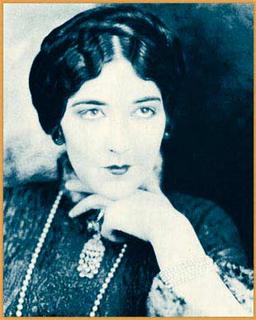 September 12, 1947
September 12, 1947Los Angeles
Finalized today was the divorce of one-time silent screen starlet and fruit company heiress Aileen Pringle, 46, and crime novelist James M. Cain, 55. The pair were wed three years ago in Santa Monica, but separated last year. In her complaint, Mrs. Pringle, who was formerly married to Jamaican aristocrat Charles McKenzie Pringle and romantically linked to H.L. Mencken, charged that Cain was a “moody, melancholy and grim” husband, who “built mental dungeons instead of castles in the air.” In a letter to Mencken in 1946, she quipped “If I had remained married to that psychotic Cain, I would be wearing a straight jacket instead of the New Look.”
Suggested reading: Cain’s The Postman Always Rings Twice, Double Indemnity, Mildred Pierce, and Selected Stories (Hardcover)

Henry R. Wagner of San Marino will be 85 years old Sept. 27 but the Zamorano Club couldn’t wait that long. In order to surprise Dr. Wagner, it celebrated his birthday at its monthly dinner Wednesday night—and the members got a surprise, too.
Never before had a woman been introduced to the club, but at that dinner Mrs. Wagner, Dorothy Huggings of San Francisco and Ruth Frye Axe, Dr. Wagner’s present secretary, were honor guests.
The Zamoranistas, all being historians to some extent, knew that the laws of the Medes and Persians had been violated on occasions, but still found it hard to believe their eyes when four women appeared on the scene.
Had the ladies not been so agreeable in their appearance and manner, the Zamoranistas would have thought their hide-out in the University Club had been discovered by some Carrie Nation.
The fourth woman was Mrs. George L. Harding, one of the San Francisco Bay area delegation that came down to honor Dr. Wagner. Francis Farquhar headed the San Francisco group, which brought a book of more than 100 pages of tributes to Dr. Wagner which the famous Ed Grabhorn had set up and bound as his personal tribute. The meeting was the largest in the club’s history.
+ + +
Although Lee Shippey is encountered today as nothing more than the author of “It’s an Old California Customâ€Â and “Luckiest Man Aliveâ€Â in some local used bookstores, he was a fixture on The Times editorial page for decades, writing “Lee Side o’ L.A.â€Â for 22 years and continuing to contribute columns after he retired in 1949.
Like his other editorial page counterparts, such as Timothy G. Turner, Shippey was a miniaturist, offering opinions, humor as well as reporting that appeared nowhere else in the paper. One day he might cover test flights of the Flying Wing and in another column would wonder why the United States didn’t adopt a national ID card as the French did.
And as many columnists, he had his perennial subjects, in this case, the Zamorano Club, a group of bibliophiles named for the first printer in California, Don Augustin V. Zamorano, founded in 1928 and devoted to small press runs of finely printed books, many of them published by Ward Ritchie.
Henry Raup Wagner, the subject of Shippey’s column, was apparently a fascinating man. One of Yale’s oldest living graduates at the time of his death in 1957, Wagner was a successful mining engineer when he retired in 1920 and at the age of 58 began a second career writing about history, a lifelong interest.
A Berkeley resident when he wrote his best-known book, “The Plains and the Rockiesâ€Â (1920), he moved to San Marino a few years later, according to the popular joke among the Zamoranistas, to be closer to the valuable collection of 2,600 volumes he sold to the Huntington Library.
Wagner was honored at the Zamorano Club dinner for doing more than any other person in the name of historical accuracy in certain fields, something to be applauded 48 years after his death.
One of the club’s many accomplishments is its 1945 volume “The Zamorano 80,â€Â a list of distinguished California books. For further reading on “The Zamorano 80â€Â visit this site: https://www.dsloan.com/Auctions/A12/DSIntro.htm
https://www.lmharnisch.com
Personal note: One of the favorite items on my desk is a Zamorano Club paperweight that belonged to the late Pasadena bookstore owner Dirk Cable. I like to think it’s in good hands.